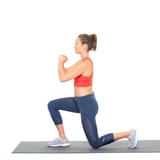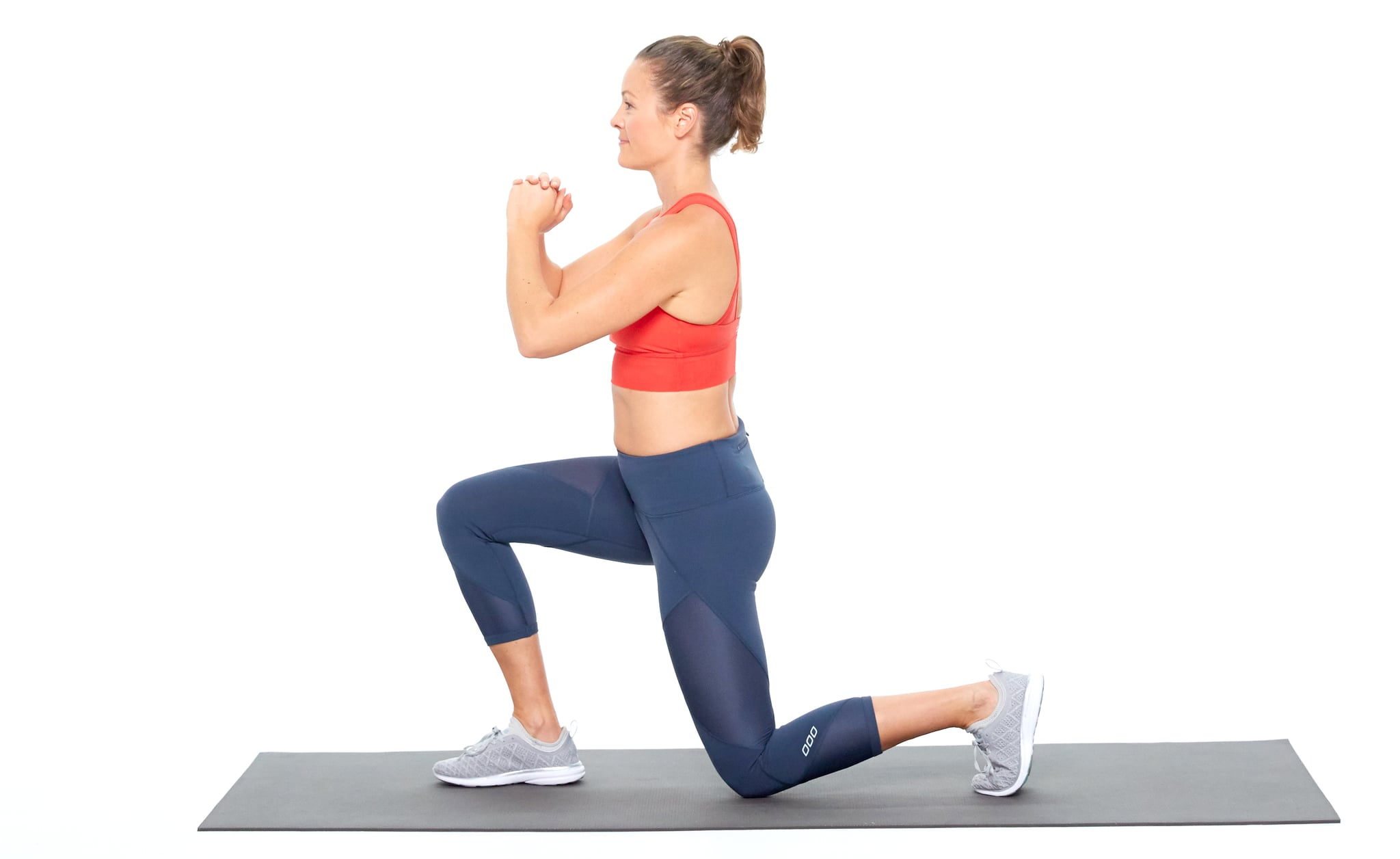
Lunges are an essential exercise with countless variations, with or without weights. This is a move you can do anywhere and see the effects - toned legs and a shapely backside - in no time. But to reap these benefits, you need good form. And so you don't do more harm than good, here's how to perform lunges correctly.

How to Do a Forward Lunge
- Keeping your core engaged and your torso upright, step forward with one leg, lowering your hips until both knees are bent at about a 90-degree angle. Make sure your front knee is directly above your ankle; you should be able to see your front toes. Your back knee should hover just above the floor.
- Press your front heel into the floor as you push back up to the starting position.
- Repeat for 10 reps on one side, then switch legs. Or you can alternate which leg steps forward for alternating lunges.
Variations
Now that you have the basics down, you can modify your lunge workouts to challenge your body in different ways.
- Work harder by holding weights at your sides as you perform front lunges.
- Step backward into the lunge for reverse lunge. This version might be easier on your knees.
- Add a dumbbell bicep curl to your lunges to work your upper body while you strengthen your legs.
- Try walking forward lunges to further challenge your balance.
- Change directions and try side lunges to work different muscles in your lower body. Find out the correct way to do a side lunge here.
Injury prevention
Even though lunges are one of the best ways to work your lower body, some people tend to avoid them because this exercise can put too much strain on the knees. If you feel pain, decrease the range of motion and take smaller steps. Slowly increase your lunge distance as your legs get stronger. Some people also find that reverse lunges or walking lunges to be kinder to their knees.

0 comments :
Post a Comment